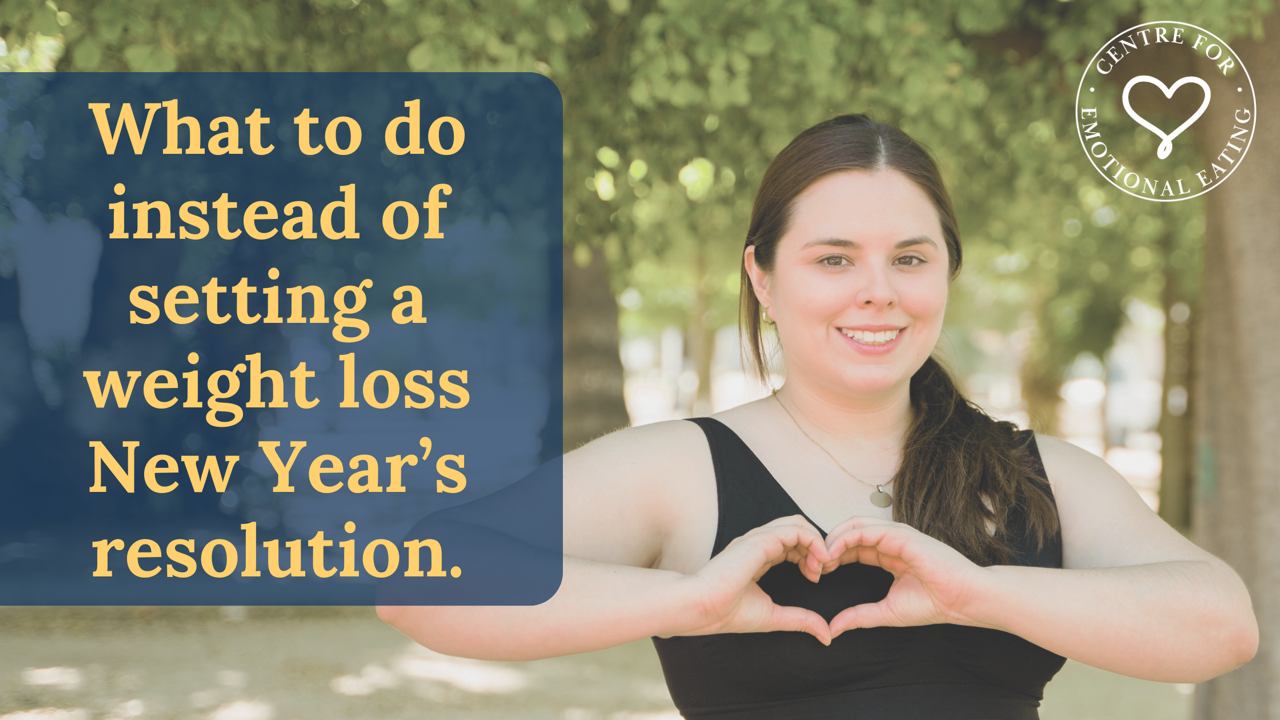BLOG
Find support not just for emotional eating, but all aspects of your well-being.
Welcome Spring with these Insightful Journal Prompts

There is no denying that springtime is a season of renewed positive feelings, like hope and joy. More daylight hours, warmer sunshine, and the ability to crack the windows refreshes us. There is something about shedding puffy winter coats and clunky boots that also allows us to feel lighter—in all the senses of the word!
If you are someone who feels as if they are waking up at this time of year and aren’t sure where to put your rising energy and good mood, below we’ve got some great questions for you to reflect on!
Choose one—or play around with all of them—and get inspired to look inwards. Getting clarity can help you feel more in-tune with what fills your cup and is a great way to not only recognize your needs, but meet them. This practice makes you feel more fulfilled, meaning you’re less likely to reach for food to soothe yourself.
- If your mood is feeling more positive this season, what is it that is creating this mental shift? How can you do or get more of it? What else in yo ...
How to Deal with an Endless To Do List

Checklists can be a helpful tool: they can organize your day and make you feel motivated. But when it feels like you’ve got a never ending to do list, you can feel defeated and constantly drained.
You might even find yourself unable to relax or feel like you haven’t ‘earned’ rest because of all the lingering things you need to get done. With this mentality it is easy to fall into emotional eating patterns to avoid your to do list.
Food becomes the only ‘acceptable’ way to take a break, so you go grab an afternoon pastry to get away from your desk or find yourself in the pantry looking for a snack to focus on something other than your tasks. This pattern of eating also packs a one-two punch of helping you disassociate from your to do list and all the feelings around it: stress, overwhelm, anxiety, fear.
It is unavoidable that life will get busy, but that doesn’t mean you have to live in a constant state of stress eating. Here are four key strategies to bring you some peace of mind, ...
Client insight: “Emotional Eating is my Comfort… And it’s Comfortable”

After working with emotional eaters for more than a decade, it is common to hear from clients that they don’t understand why they keep emotionally eating when it makes them feel terrible.
They can’t stand the overfull feeling after a binge.
They hate hiding from others and sneaking food.
They judge their worth by thinking they need more willpower to get their shit together.
They dread the judgement, guilt, and self-hatred that comes after eating.
They’re ashamed of how much money they spend on food.
For something that is supposed to bring a sense of comfort, these things sound like anything but! So, why are you stuck in this emotional eating cycle when you know it doesn’t feel good? It isn’t about cravings for specific foods or an “addiction to sugar.”
It is because emotional eating is familiar. It is the predictability, even the negative side of it, that offers you a sense of comfort. You know what to expect and our brains are wired to go with what we know. Yup, even when what ...
Three Ways to Manage Your Emotions

Emotional eating bubbles up when you don’t want to feel or experience something. Food is always available and seems like an easier route than facing things head on. But the truth is, your feelings just want to be heard and comforted by you. That is the key to breaking out of the emotional eating cycle, not more will power.
This sense of confrontation can feel very scary when you’ve spent years avoiding your feelings, so we’re sharing 3 great ways to get your emotions out in a way that will help you recognize them and move through them—instead of being stuck in the trigger-eat-regret cycle:
Use your voice. One of the best ways to help diffuse the intensity of your emotions is to talk to yourself out loud. This might feel silly at first, but it can be a great way to identify what exactly you are feeling. Find a space alone (the bathroom is a great one!) and start to find your words, for example: “I am feeling really attacked right now”, “I’m so worried I disappointed them and they are ...
Grab Your Journal! How to Meet Your Own Needs

Chances are, if you’re an emotional eater you put your own needs on the back burner. That might be because you aim to take care of others or you feel you have to show up perfectly every time. But stuffing down what you need to feel your best is a recipe for those unmet feelings to come up with your relationship with food.
We often hear from clients here at the Centre for Emotional Eating that they don’t know how to identify their needs, less alone meet them. And that is ok! It takes time to get to know yourself when you’ve been using food to hide behind. Plus, what lights you up can change over time, so don’t feel bad if something that used to work for you doesn’t anymore—we are constantly growing and learning!
Here are some journal prompts to get you thinking about what your needs are and how to meet them. Start by finding some time to sit with yourself. If this seems impossible to you, feel free to journal in chunks of time: answer a question quickly then think about it until you c...
Your Top Questions About Emotional Eating

Today we’re answering the most Googled questions about emotional eating. The Centre for Emotional Eating has more than a decade of experience helping clients get to the root cause of their emotional eating. The factual and helpful answers below are a great place for you to begin your own journey!
- What is the definition of an emotional eater?
Emotional eating is when a person uses food to cope with emotions. Think of it this way: food becomes a reliable shield you can put between you and stress, anxiety, loneliness, etc. It can numb you out or distract you from what is really going on in your mind, heart, and body.
You might feel like your eating is out of control because of the cravings you have for specific foods, but it is really the feelings behind your behaviour that is driving you to eat. This means that emotional eating is a symptom/response to emotions, which leads up to the next question…
- How to stop emotional eating?
Now that you know emotional eating isn...
Eating for the Season

Winter can be a challenging time for many people. Less sunlight, colder temperatures, and unpredictable weather can make it difficult to keep your mood up. One of the ways you may be looking for comfort is through food, and that is normal! People often think that emotional eating is automatically bad or negative, but the truth is it is a coping mechanism just like scrolling on your phone or journaling. With awareness you can begin to understand why you reach for certain foods when you feel a certain way.
And it is usual for your cravings to change with the seasons! Cooler temperatures can have us reaching for mashed potatoes and creamy soups. The warmth, texture, and carbs feel like a hug when the Winter feels cold and isolating. Many would agree that a salad or smoothie that was so refreshing in July just isn’t as tempting in January.
Learning to go with the flow of your food preferences is a great way to also help manage your emotional eating. This process has you gently check in w...
Do You Have a New Year’s Resolution to Lose Weight?

Every January we see more and more messaging about a New Year diet, cleanse, or detox. As a society, we’re pretty vulnerable after holiday celebrations in December that it feels like a given that we should restrict and punish ourselves when the calendar flips to the new year.
If you’ve been caught up in this experience, know you are not alone. New Year’s resolutions to lose weight are incredibly common. But have you ever stopped to think about how this need to diet comes back around *every* year? That means it isn’t working in the first place! This is the truth behind diet culture: it wants to keep you feeling negative about yourself so you keep buying the new plan, app, or book because it keeps them in business.
If you’re tired of yo-yo dieting and constantly feeling bad about how you look, we have 3 things you can add to your routine that won’t make you feel like you’re failing. This is the opposite of a new diet that takes away things you enjoy, telling you to give up carbs or tha...
Make Your Own Holiday Traditions

There is something about the holidays that bring out our perfectionist side. From the ideal tree to picture-worthy cookies, flawlessly wrapped gifts to lights decorating your home, it seems there is only one vision of the holidays... And it is a very detailed, expensive, and time-consuming vision. It might be a magical season, but that magic is created by us!
That also means you get to decide what makes the holidays special!
Think of this blog as your permission slip to celebrate the season in a way that feels good to you… not just look good! We grow up with all kinds of traditions of what we’re “supposed” to do to celebrate, but the truth is, there is no wrong way to celebrate the season!
Here are some ideas to get you started:
- Decorate when and how you want. If twinkle lights hung in November makes you feel joyful and cozy, put them up! If it stresses you out to decorate right now, you can wait or only pull out only a few decorations when you feel like it.
- Have a potluck with ...
3 Emotional Eating Tips to Survive the Holidays

The snow isn’t the only thing swirling as we face the holiday season: emotions can feel all over the place as we’re faced with more things on our to do list that usual. Plus, there are so many opportunities where we are faced with food: dinners, potlucks, parties! If you’re an emotional eater you might dread this time of year.
But you don’t have to feel helpless. Below are three key things you can implement right now to start feeling calmer around food.
This time of year might bring with it specific family recipes you look forward to or limited-time store-bought items you crave. But this mindset can have you believing that these foods are scarce and you have to eat them every chance you get to make sure you take advantage of them being available.
- Try this: Start by giving yourself permission to eat the things you really enjoy. Practicing this means you’ll be much more satisfied by what you put in your mouth. And an interesting mental shift can happen when you know you can eat what ...


